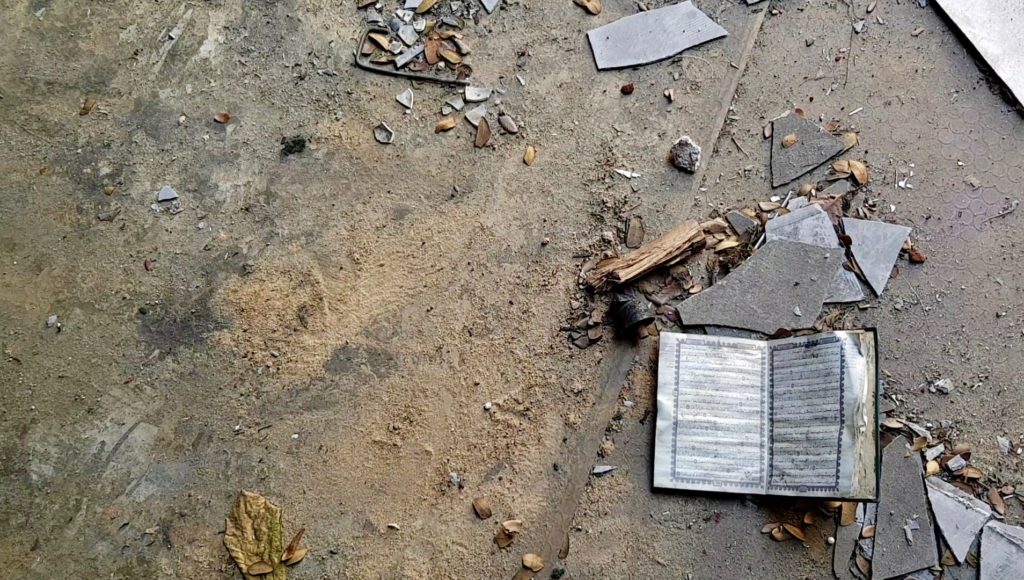When violence spread to Digana on the 5th of March 2018, Mr. J.M Niyas suffered heavy losses.
He lost his grocery store; the source of income that helped him feed and educate his family, and made him a well-known figure in the community of Kengalla, in the Pallekele area.
He lost the community mosque; the Masjidul Laafir Jummah Masjid, then located right next to his old store (and now rebuilt on the opposite side of the road). It boasted a 200-year old history, and was a refuge and landmark for Muslim residents in the area.
He lost trust and comfort in his locality; owing to the fact that those who laid waste to his property and the mosque were those from his neighbourhood, people he had fed and helped financially throughout his life. The riots have left him with a sense of unease in the place he calls home.
Niyas first spoke to Groundviews in June last year, three months after the riots. He spoke then of the lack of any concrete compensation plan for those affected, the individuals he knew were responsible, and the inaction of police officials while these places he held dear were going up in flames.
One year later, these concerns still remain.
He speaks of how the full compensation owed to affected individuals has not come through, lost in what seems like a mess of bureaucracy. He also talks about the convoluted process to obtain building permits to reconstruct the mosque. In a statement last year, civil society noted that ‘for reparations to be transformative, they must be prompt, effective, and inclusive and the process must be transparent’. The Centre for Policy Alternatives put forward the need for an Office for Reparations that would streamline the various processes that victims currently have to go through, and allow them to access reparations with ease. Niyas’ accounts only strengthen the need for such a mechanism, so that individuals like him do not have to suffer twice.
While the financial loss cannot be understated, the loss that affects Niyas most deeply is that of trust in those he once called friends and members of his community. It is difficult to return to the state of peacefulness and normalcy that existed before the violence began. The release on bail of key suspects , compounded with the flawed reparations process, heightens fears that ‘the State will not acknowledge the costs passed on to the victims and endured more generally’. Continued impunity will only deepen the mistrust and anger, leading to equally heavy loss in future.
View the video embedded below.
